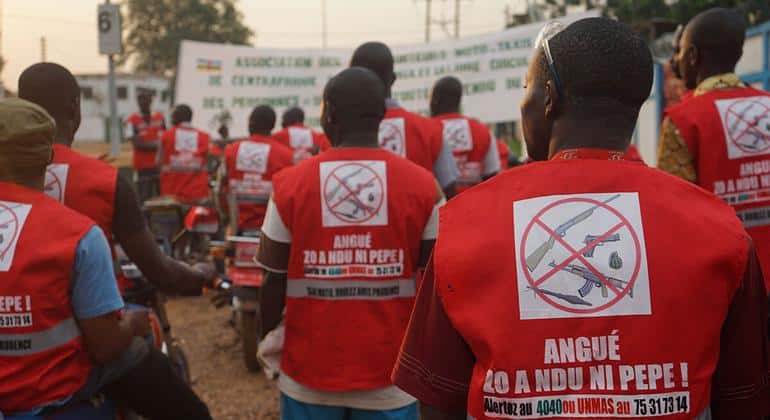Here’s the translation of the text into American English:
—
The proliferation of small arms and light weapons continues to be a serious global issue, fueling conflicts, organized crime, and terrorism. In a recent debate at the UN Security Council, Adedeji Ebo, Deputy High Representative for Disarmament Affairs, made an urgent call to address the situation. Ebo revealed that over one billion firearms are currently in circulation, a figure that underscores the complexity of global security crises.
The high representative emphasized that, despite advancements in international cooperation and the establishment of regulatory frameworks, challenges in implementing effective controls over these weapons persist. The ongoing expansion of their availability is seen as both a symptom and a determining factor of the security crises affecting numerous countries.
During his remarks, Ebo mentioned recent achievements, such as the adoption in 2023 of a Global Framework for the Life Cycle Management of Conventional Ammunition, created to prevent the diversion of stockpiles and accidents in military depots. He also referred to the Fourth Review Conference of the Program of Action on Small Arms and Light Weapons, where the commitment to combat the illicit manufacturing and trafficking of arms was reaffirmed.
The representative emphasized regional initiatives, such as the arms control roadmaps in Central America, the Caribbean, and Africa, as well as the “Silencing the Guns” initiative spearheaded by the African Union. These tools are considered significant steps toward a more coherent global framework.
The impact of small arms trafficking is devastating. According to data from the Office of Human Rights, 48,000 civilians lost their lives in 2024 due to armed conflicts, a 40% increase compared to the previous year, with a notable percentage of these deaths attributed to small arms. Additionally, 88% of documented cases of sexual violence in conflicts since 2022 involved firearms.
Ebo also warned about the negative repercussions of arms proliferation on economic stability, disrupting education and destroying health systems. Global military spending reached $2.7 trillion in 2024, a 37% increase since 2015, while major arms manufacturers generated revenues of $632 billion. “The world needs to rebalance its priorities,” Ebo stated, emphasizing the importance of investing in human security rather than in armaments.
The UN Secretary-General has proposed to strengthen the comprehensive management of arms and ammunition and improve tracking and border control systems. Ebo urged states to collaborate with expert panels in the inspection of seized weapons and to act promptly on tracing requests.
Finally, Ebo called on the Security Council to systematically integrate the small arms dimension into all its mandates, highlighting the need to adopt a gender and youth perspective. “Prevention must be inclusive,” he concluded, underscoring the importance of integrating the voices of women and youth into peace strategies.
—
Let me know if you need any further assistance!
via: MiMub in Spanish











